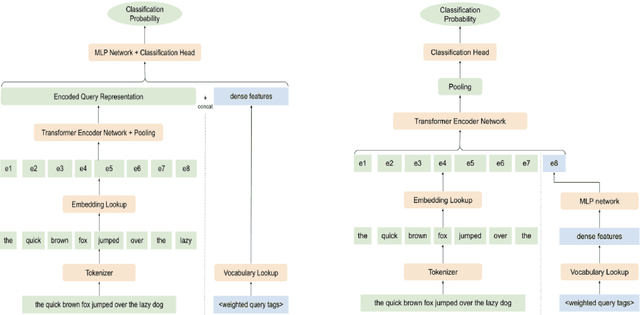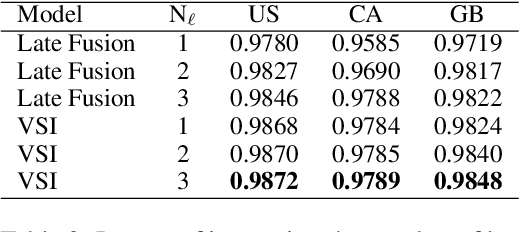Shailesh Bavadekar
Community search signatures as foundation features for human-centered geospatial modeling
Oct 30, 2024



Abstract:Aggregated relative search frequencies offer a unique composite signal reflecting people's habits, concerns, interests, intents, and general information needs, which are not found in other readily available datasets. Temporal search trends have been successfully used in time series modeling across a variety of domains such as infectious diseases, unemployment rates, and retail sales. However, most existing applications require curating specialized datasets of individual keywords, queries, or query clusters, and the search data need to be temporally aligned with the outcome variable of interest. We propose a novel approach for generating an aggregated and anonymized representation of search interest as foundation features at the community level for geospatial modeling. We benchmark these features using spatial datasets across multiple domains. In zip codes with a population greater than 3000 that cover over 95% of the contiguous US population, our models for predicting missing values in a 20% set of holdout counties achieve an average $R^2$ score of 0.74 across 21 health variables, and 0.80 across 6 demographic and environmental variables. Our results demonstrate that these search features can be used for spatial predictions without strict temporal alignment, and that the resulting models outperform spatial interpolation and state of the art methods using satellite imagery features.
Dense Feature Memory Augmented Transformers for COVID-19 Vaccination Search Classification
Dec 16, 2022



Abstract:With the devastating outbreak of COVID-19, vaccines are one of the crucial lines of defense against mass infection in this global pandemic. Given the protection they provide, vaccines are becoming mandatory in certain social and professional settings. This paper presents a classification model for detecting COVID-19 vaccination related search queries, a machine learning model that is used to generate search insights for COVID-19 vaccinations. The proposed method combines and leverages advancements from modern state-of-the-art (SOTA) natural language understanding (NLU) techniques such as pretrained Transformers with traditional dense features. We propose a novel approach of considering dense features as memory tokens that the model can attend to. We show that this new modeling approach enables a significant improvement to the Vaccine Search Insights (VSI) task, improving a strong well-established gradient-boosting baseline by relative +15% improvement in F1 score and +14% in precision.
 Add to Chrome
Add to Chrome Add to Firefox
Add to Firefox Add to Edge
Add to Edge